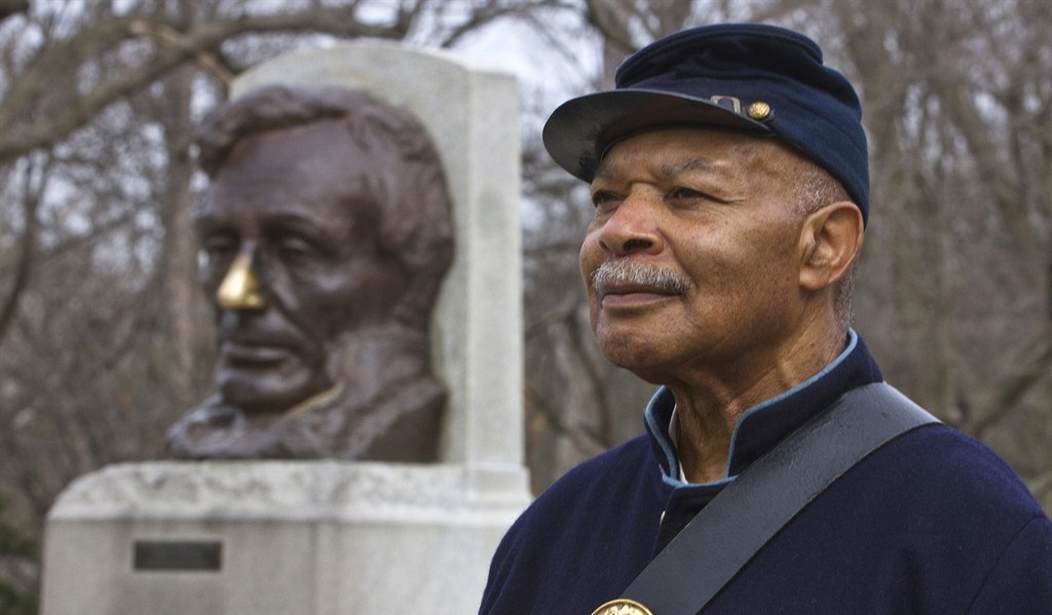On this day in 1776, July 4, the Declaration of Independence was officially adopted, marking the birth of a new and unique nation, which, as Abraham Lincoln later said, was conceived in liberty and dedicated to the proposition that all men are created equal.
Founding Father and Declaration signer John Adams said of this holiday, “It ought to be commemorated, as the Day of Deliverance by solemn Acts of Devotion to God Almighty. It ought to be solemnized with Pomp and Parade, with Sh[o]ws, Games, Sports, Guns, Bells, Bonfires and Illuminations from one End of this Continent to the other from this Time forward forever more.” The immortal words of that Declaration adopted by the Continental Congress recognized that “all men are created equal, that they are endowed by their Creator with certain unalienable Rights, that among these are Life, Liberty and the pursuit of Happiness.“ While we have fallen short of our own ideal time and again, that is the bedrock principle on which America was founded and the essence of what it means to be American.
Many leftists will use July 4 to screech about racism and how America is evil, totally ignoring our nation’s many heroes. One real-life story perfectly captures both the mistakes Americans have made and the great promise of hope and liberty that the United States has given to the world. Let us go back to April 18, 1862, at a time when the Union Army had begun to assist slaves who fled to them from Confederate hands to achieve freedom.
On that April day in 1862, the Union army was approaching the rebel town of Fredericksburg, Virginia. “It is heart-sickening to think of having our beautiful valley, that we have so loved and admired, all overrun and desolated by our bitter enemies, whose sole object is to subjugate and plunder the south,” white Fredericksburg resident Helen Struan Bernard mourned, calling herself and her fellow townsmen a “conquered people” no longer allowed to fly the “symbol of resistance to oppression” (the Confederate flag) in Fredericksburg.
John Washington, who had long been a slave in Fredericksburg, remembered that the white people all raced outside at the sound of “Yankee” cannons and then shut themselves into their houses. But it was different for the black residents of the town, particularly the slaves, who filled the streets, all in “the best of humors.” For the slaves knew that one could escape to the Union army and thus become “contraband” seeking freedom.
Washington had married a freedwoman that year, but he himself was born and raised a slave. When he heard the “Yankee” cannons, he and his fellow slaves rushed to the housetops, where they saw the Union bayonets gleaming in the sun. “I could not begin to express my newborn hopes, for I felt like I was certain of my freedom now,” Washington recalled the deep emotions he experienced. To him, the U.S. Army uniforms and flag did not mean “oppression” as they did to Helen Bernard; they meant liberty and justice for men who had experienced precious little of either.
So some of the slaves, eager to locate the Union soldiers, went up the Rappahannock River until they saw a group of Union soldiers on the shore opposite. In John Washington’s own words, as quoted by the Fredericksburg Battlefield museum (emphasis mine):
Very soon one of a party of soldiers called out to us, ‘Do any of you want to come across?’ Everybody else said ‘No,’ but I hollered out: ‘Yes! I want to come over!’ After I had landed on the other side, a large crowd of the soldiers gathered around us and asked all kinds of questions.
One of them asked me if I was a slave. ‘Yes, I am sir,’ I replied, ‘a slave all my life.’ ‘Do you want to be free?’ inquired one. ‘By all means!’ I answered. I did not know what else to say for I was dumb with joy and could only thank God and laugh. This was my first night of my freedom.
How much most Americans take for granted the rights and freedoms that made John Washington “dumb with joy” at the thought of possessing! As Thomas Jefferson, author of the Declaration of Independence we celebrate today, said, “My God! How little do my countrymen know what precious blessings they are in possession of, and which no other people on earth enjoy!”
John Washington went on to live in Washington, D.C. with his wife Annie for some fifty years after the Civil War, even writing a memoir, “Memorys of the Past,” called a “classic of slave literature” by the Fredericksburg Battlefield museum. He went from slave to American citizen and author. To him, America had presented both her worst and best sides. Yes, he spent his childhood and youth in slavery. But American soldiers came to his town one day and set him free, as the Declaration of Independence and U.S. Constitution originally intended.
That is the legacy of the United States of America. There have been many, too many Americans who have failed to live up to the ideals of our own founding documents—Americans like Helen Struan Bernard, who turned traitor to her country and uttered bitter invectives against her fellow Americans who opposed her warped vision. But there were also Americans like John Washington and the Union soldiers who brought John to freedom.
Like the Union soldiers who welcomed and assisted John Washington, America has one question for men and women of all ages, races, and backgrounds: “Do you want to be free?” And to all who answer “By all means!” America responds, “Come, for all men are created equal and endowed by their Creator with certain unalienable rights: life, liberty, and the pursuit of happiness.”










Join the conversation as a VIP Member